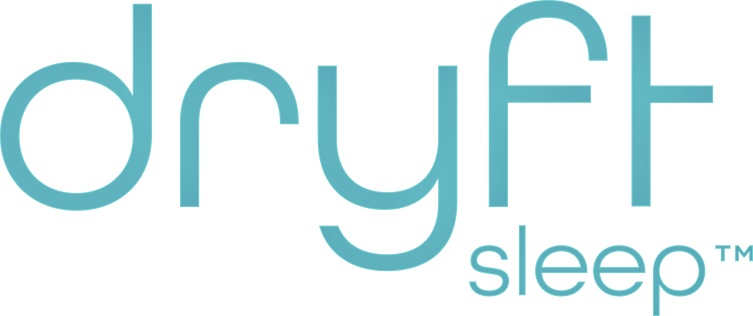Sleep + Longevity Connection

Sleep & Longevity: Why Your Future Self Cares How You Sleep Tonight
If you’re thinking about longevity, you’re probably focusing on food, exercise, and maybe a few supplements. But there’s a quiet third pillar that makes all of those efforts either land…or leak away: sleep.
We don’t just feel better after a good night’s sleep. Long-term data is now very clear: how much and how well you sleep over a lifetime is tightly linked to how long and how vibrantly you live.
The “Goldilocks zone” of sleep and lifespan
Large population studies have followed hundreds of thousands of people for years and looked at how their usual sleep relates to risk of death from any cause. The pattern is surprisingly consistent:
- Both short sleep (typically less than 6–7 hours a night) and
- Long sleep (often 9+ hours regularly)
are associated with a higher risk of all-cause mortality compared with people getting ~7–8 hours. Multiple meta-analyses and cohort studies show this U-shaped curve between sleep duration and mortality risk. PMC+2PMC+2
One recent meta-analysis found that people with very short sleep had about a 14% higher risk of death, while those with very long sleep (≥9 hours) had about a 34% higher risk, compared with people in the middle. PMC
So no, “I’ll sleep when I’m dead” is not a cute personality trait. It’s literally a longevity strategy…in the wrong direction.
Sleep isn’t just about living longer — it’s about aging well
Researchers are now talking not just about lifespan (how long you live) but healthspan (how long you live without major chronic disease, with a sharp mind, independence, and good mood).
A large study published in BMC Public Health followed adults over time and found that people who consistently slept 7–8 hours per night had about an 18% higher chance of “healthy aging”—meaning they lived longer while staying free of major chronic diseases and maintaining good physical function, cognition, mental health, and social engagement. Verywell Health
Other work shows that poor or irregular sleep is linked with faster cognitive decline—think memory, processing speed, and executive function. PMC+1 Over decades, that adds up: consistently good sleep is like compound interest for your brain.
It’s not just how much you sleep — it’s how consistently
More recent research is highlighting sleep regularity—going to bed and waking up around the same time—as another powerful predictor of long-term health and mortality. Studies show that irregular sleep patterns (same total hours, but all over the place) are associated with higher risk of cardiovascular events and death. OUP Academic+1
Think of your circadian rhythm (your internal 24-hour clock) as the master conductor. When your sleep is chaotic, the rest of your biology—metabolism, hormones, immune system—starts to play out of tune. Over years, that increases risk for heart disease, diabetes, obesity, and earlier death. CDC+1
Bottom line:
- Most adults do best with ~7–9 hours of sleep per night
- At roughly the same times every day
That’s your longevity baseline. From there, you can upgrade the quality of those hours.
Three high-impact levers to upgrade your sleep (and future self)
You don’t have to rebuild your entire life to start sleeping in a more longevity-friendly way. If you want simple, concrete actions, start with these three:
- How you breathe
- What you hear
- What you do with devices before bed
1. Breathe better: from mouth breathing to nasal breathing
Good sleep isn’t just about unconsciousness; it’s about oxygen, airway stability, and nervous system calm.
Chronic mouth breathing at night can be associated with:
- More snoring and airway collapse
- Drier mouth and throat
- Fragmented sleep and micro-arousals
- Waking up unrefreshed
Nasal breathing, by contrast:
- Helps filter and humidify air
- Supports better nitric oxide production (linked to vascular health)
- Can promote more stable, restorative sleep
Practical ways to support nasal breathing at night:
-
Address congestion during the day
- Saline rinses, a humidifier, and talking to your doctor if you suspect allergies or structural issues (like a deviated septum).
-
Sleep position
- Side-sleeping often helps reduce snoring and upper airway collapse compared to flat-on-your-back sleeping.
-
Try gentle mouth taping
- Using a purpose-made, skin-friendly mouth tape can gently encourage nasal breathing overnight.
- For example, Dryft Sleep Mouth Tape uses a beauty-conscious design and medical-grade adhesive that’s formulated specifically for facial skin, making it a more skin-friendly option than generic or acrylic-based tapes.
Important note: Mouth tape is for generally healthy adults who can breathe through their nose. If you have significant nasal blockage, sleep apnea, or breathing disorders, talk with a healthcare provider before trying it.
2. Quiet the noise: sound pollution & your nervous system
Your brain keeps one ear open all night long. Even if you don’t fully wake up, traffic, neighbors, partners snoring, or city noise can nudge you out of deeper stages of sleep. Over time, that means less slow-wave and REM sleep—the stages most tied to memory consolidation, immune function, and emotional regulation.
To protect your “sleep soundscape”:
-
Block noise at the source (when you can)
- Close windows, use soft-close doors, oil squeaky hinges, relocate loud appliances if possible.
-
Use consistent, soothing sound
- White noise, brown noise, or nature sounds can “mask” unpredictable noises and keep your brain from constantly orienting to new sounds.
-
Consider earplugs—especially if you share a bed, have kids, or live in a city
- Moldable silicone earplugs can be more comfortable and effective at sealing out noise than traditional foam plugs.
- Dryft Sleep Silicone Earplugs, for example, are fully moldable to the outer ear and designed for comfort during long wear, making them a good option if you’re sensitive to sound but still want a chic, sleep-focused solution.
If you’re worried about not hearing alarms or kids:
- Keep one earplug out or use a quieter setting (white noise plus one earplug on the “noisy” side).
- Set a vibration alarm on a smartwatch or phone under your pillow.
3. Tame your tech: devices and your “longevity window”
Those 60–90 minutes before bed are a biological runway where your body is trying to lower cortisol, raise melatonin, and gently slide you into deep sleep. Bright screens and emotionally stimulating content are like revving an engine on that runway.
Why devices before bed are a problem:
- Blue-rich light from phones and tablets can suppress melatonin, delaying sleep onset and shifting your internal clock later. NHLBI, NIH
- Scrolling, email, and doom-news keep your brain in “problem-solving” or stress mode instead of winding down.
- Social comparison (“Why is everyone else thriving at 11:17 p.m.?”) can quietly spike anxiety and rumination.
Simple device rules that actually stick:
-
Set a “digital curfew” 60 minutes before your target bedtime
- If that feels impossible, start with 20–30 minutes and build up.
-
Create a charging station outside the bedroom
- Use an old-school alarm clock so your phone isn’t your pillow buddy.
-
Switch to low-arousal tasks
- Light reading (paper or e-ink), stretching, journaling, or a warm shower.
-
Night mode is better than nothing, but not a full fix
- Blue light filters help, but content still matters. Watching a stressful show in “night mode” is like drinking decaf espresso—still not exactly calming.
Putting it together: a longevity-friendly “Sleep Stack”
Here’s a simple, practical stack you can start tonight:
-
Choose your sleep window
- Aim for 7–9 hours, at roughly the same time every night, including weekends.
-
Upgrade your breathing
- Clear your nose (saline rinse, steamy shower).
- Sleep on your side if snoring is an issue.
- If appropriate for you, try Dryft Sleep Mouth Tape to gently encourage nasal breathing and reduce mouth-based snoring.
-
Control your sound environment
- Turn on a fan or white-noise machine.
- Add moldable silicone earplugs (like Dryft Sleep Earplugs) if noise is a recurring issue.
-
Defend your pre-sleep hour from devices
- Set a daily “phone in the kitchen” alarm.
- Swap late-night scrolling for a consistent wind-down ritual: stretch, magnesium body spray, skincare, breathwork, or a short journal entry.
-
Repeat. Consistency = compounding.
- Just like retirement accounts, small, consistent deposits of good sleep can change what your 60s, 70s, and 80s actually feel like.
If you’re building a longevity plan, sleep isn’t the background—it’s the operating system. Protect your breathing, your soundscape, and your pre-bed inputs, and you’re not just chasing “more years.” You’re stacking the deck for more clear-headed, energetic, emotionally steady years, too.










